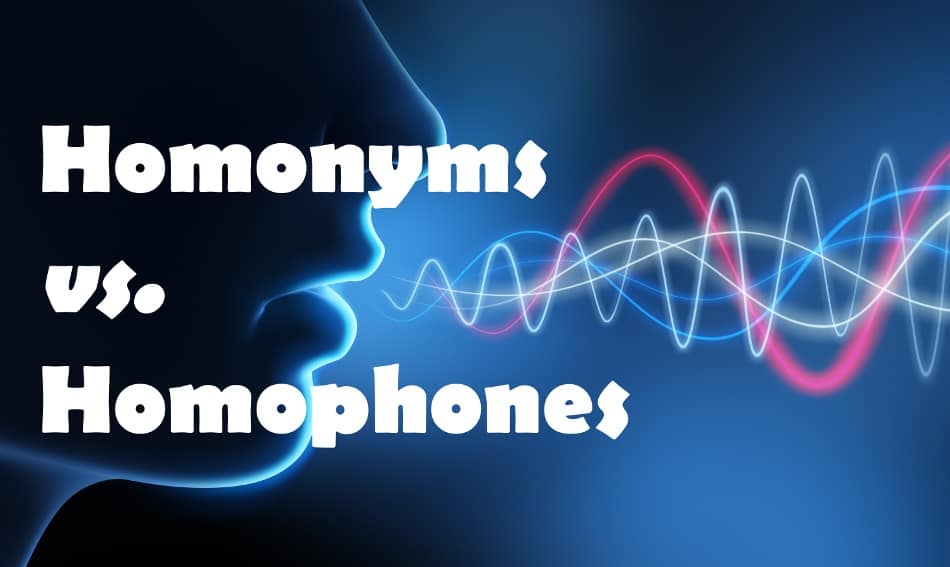
Commonly Confused Words: Homonyms vs. Homophones

One of the first spelling lessons that was taught in grade school was to simply sound it out. It’s a perfectly easy method of spelling a word that couldn’t go wrong, right? Enter the world of homonyms vs. homophones. Just hearing a word that falls under one of these two categories might not be enough to figure the meaning or manner of spelling.
Homonyms vs. Homophones at a Glance

In order to understand a homophone vs. homonym, it’s important to understand the definition of each. Here are the meanings of homonyms and homophones:
* Homonyms are words that are spelled and pronounced the same but have different meanings.
* Homophones are words that are spelled differently and have different meanings, but sound similar.
When to Use Homonyms

Homonyms are used to describe words that look the same. The way the word looks, however, is only one part. Despite the similarities, the deciding factor lies in the different definitions of each word. Homonyms may have matching appearances, but it’s their true meaning that set them apart.
Homonym Examples:
- The vendor’s rates may increase in the month of May.
- As the pitcher returned to the dugout, he immediately reached for a pitcher of cool water to quench his thirst.
Homonyms List:
Here is a short homonyms list of some of the most common homonyms out there and their different definitions:
- Address – a location / to speak directly to
- Die – a white cube used to play board games / to stop living
- Kind – caring / a type of
- Mean – to be rude / an average of numbers
- Right – not left / to be correct
- Spring – to jump / season that comes after winter
- Well – a place to gather water / to be healthy
When To Use Homophones

Homophones are eerily similar to homonyms, although there is a key difference. A homophone is used when two words share the same sound and pronunciation, like a homonym; however, to be a homophone, they must be spelled differently.
Homophone Examples:
- When he awoke days later, he felt as if he was in a daze.
- The girl tied up her bathing suit and jumped into the high tide.
Homophones List:
Enjoy this list of common homophones in the English language:
- Bare vs. Bear
- Break vs. Brake
- By vs. Buy
- Cell vs. Sell
- Damn vs. Dam
- Eye vs. I
- Hare vs. Hare
- Here vs. Hear
- Meet vs. Meat
- Plane vs. Plain
- Reel vs. Real
- Sale vs. Sail
- Sun vs. Son
- Tale vs. Tail
- Week vs. Weak
- Where vs. Wear
Homonym vs. Homophone: Look Deeper
Homonyms can be confusing to look at since there has to be some context to discern the meaning of these identical words. There are also a few well-known homophones lists like they’re, their, and there that can ruin anyone’s writing. Sorting out homonyms vs. homophones can be a great vocabulary exercise.
Do you know of any other commonly confused words? Let us know below.
- Commonly Confused Words: Homonyms vs. Homophones - June 8, 2022


